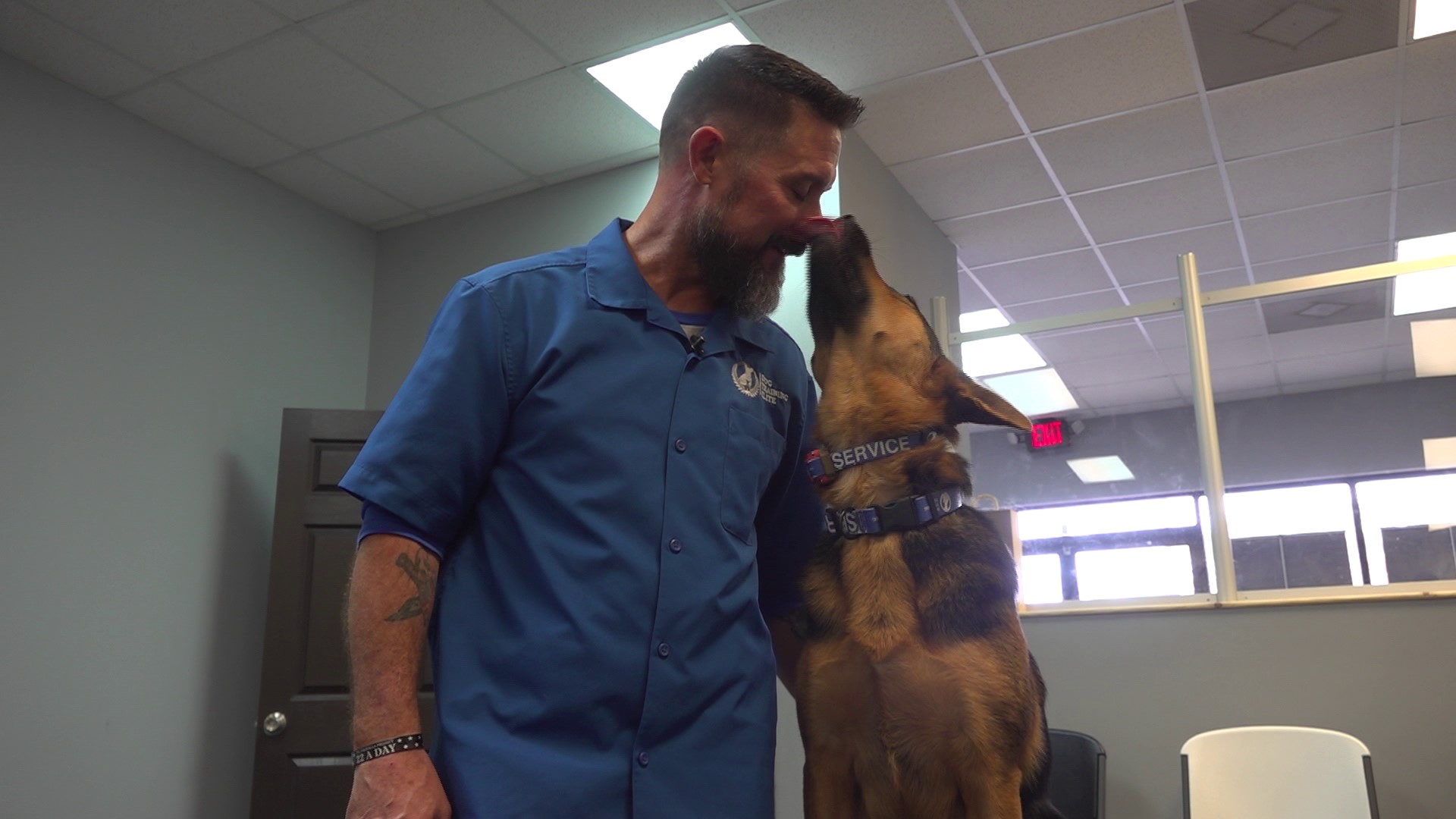HUNTSVILLE, Ala. — Those in the military serve and protect our country every day and when these service members transition back to civilian life, it can be difficult.
It's why one Veteran here in Huntsville is continuing to serve the community and other Veterans through service dog training.
For John Pitsinger, who is the owner and lead trainer at Dog Training Elite Huntsville, dogs are more than just pets, they're family.
His dog Lena, who is a two-year-old German shepherd and Australian cattle dog mix, is there with him every step of the way.
"She provides a service to me... my psychiatric service dog," Pitsinger said.
And just as she is serving him, Pitsinger spent 19 years serving in the United States Marine Corps.
"I started off as a helicopter engine mechanic, you know, working on helicopter engines. Engine goes bad in a helicopter. You got to pull it out. Somebody's got to rebuild it. So, we'd rebuild it and test it before it went back in the aircraft," Pitsinger said.
But while on active duty, he sustained a head injury, "where I had to transition out of the Marine Corps. That was a little rough getting out," Pitsinger said.
Throughout his transition back into civilian life, working in process engineering, he realized the job wasn't making him happy.
But with some encouragement from the U.S. Department of Veterans Affairs, he started training his dogs, and that heartened a passion.
"I started working with my own dogs to help me out and I noticed how much it changed my life. So that's when I decided I was going to… seek something different and help other people out the same way that the dogs helped me out," Pitsinger said.
He started his business, Dog Training Elite Huntsville, to help connect people with their pups.
While partnering with the Malinois Foundation, "placing service dogs with Veterans, children with disabilities, women survivors, first responders, you know, in need of a service dog. We provide some assistance," Pitsinger said.
Service dogs like Lena can help Veterans in many ways, whether it be for mental or physical assistance, and they can even detect when a person is anxious.
"The different things that our body does, we release different hormones in different chemicals, so we teach them to pick up on those different smells and do different things," Pitsinger said.
Throughout Pitsinger's experience helping other Veterans connect with dogs, he realizes this is what he's meant to do and encourages those who are struggling to ask for help.
"We lose so many Veterans lives to suicide because they feel like there's no hope. There's just there's always hope out there. There's always something better," Pitsinger.
Thank you for your service, Mr. Pitsinger.
According to the VA:
How do I talk to someone right now?
Find out how to get support anytime, day or night.
If you’re a Veteran in crisis or concerned about one, connect with our caring, qualified Veterans Crisis Line responders for confidential help. Many of them are Veterans themselves. This service is private, free, and available 24/7.
To connect with a Veterans Crisis Line responder anytime day or night:
- Call 988.
- Text 838255.
- Start a confidential chat.
- If you have hearing loss, call TTY: 800-799-4889.
You can also:
- Call 911.
- Go to the nearest emergency room.
- Go directly to your nearest VA medical center. It doesn’t matter what your discharge status is or if you’re enrolled in VA health care.
Find your nearest VA medical center

